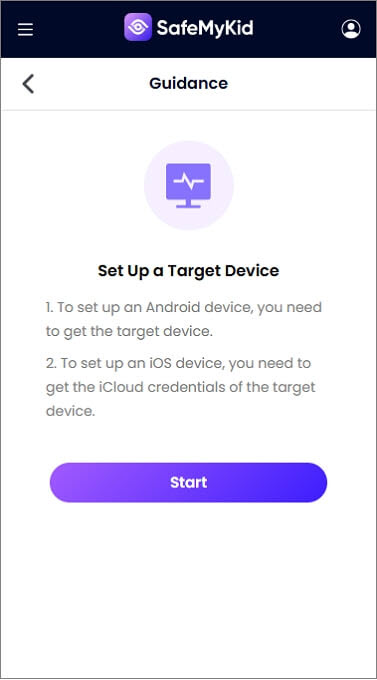I Feel My Wife Is Cheating – 7 Red Flags No One Talks about

The thought "I feel my wife is cheating" creates one of the most emotionally challenging situations in a marriage. This uncertainty can trigger a complex mixture of anxiety, suspicion, and doubt that affects every aspect of your relationship and personal well-being.

When these concerns arise, understanding how to recognize potential warning signs, communicate effectively, and determine the best path forward becomes crucial for both your relationship and your emotional health. This guide explores thoughtful approaches to address these difficult feelings with clarity and care.
Understanding Why You Feel Your Wife May Be Cheating
The feeling that "my wife is cheating" often emerges from observable changes in behavior, emotional distance, or unexplained patterns that differ from your established relationship norms.
These concerns typically develop gradually as subtle shifts in communication, intimacy, schedule, or digital behavior create a sense that something has changed in your relationship dynamic.
While these changes don't necessarily indicate infidelity, they often trigger legitimate questions that deserve thoughtful consideration.
Understanding the source of your concerns helps distinguish between normal relationship fluctuations and potential issues that may require attention.
By identifying specific patterns rather than general suspicions, you create a foundation for either addressing unfounded concerns or confronting legitimate issues constructively.
SafeMyKid: A Reliable Solution to Find out If Your Wife Is Cheating

When you can't shake the thought "I feel my wife is cheating" and need concrete answers rather than ongoing suspicion, certain monitoring solutions can provide the clarity you're seeking.
SafeMyKid offers a comprehensive monitoring solution that delivers definitive evidence about potential infidelity, allowing you to move beyond uncertainty with factual information about your wife's activities and communications.
While designed primarily for parental monitoring, many husbands use SafeMyKid to confirm or disprove their suspicions when concerning behavior patterns suggest possible infidelity.
The application works discreetly in the background, providing complete access to messages, location history, and digital activities without alerting your wife to the monitoring.
Key Features to Help You Discover If Your Wife Is Cheating
When you need definitive evidence rather than ongoing suspicion, SafeMyKid offers powerful monitoring capabilities that reveal hidden activities:
- Complete Message Access: View all text messages, WhatsApp, Facebook, and other messaging apps to discover potential secret conversations or inappropriate communications.
- Real-Time Location Tracking: See exactly where your wife goes, how long she stays, and whether her actual locations match what she's telling you about her whereabouts.
- Call History Monitoring: Access complete call logs, including incoming, outgoing, and deleted calls, to identify suspicious contacts or patterns of communication.
- Social Media Surveillance: Monitor activity across Instagram, Snapchat, Tinder, and other platforms where affairs often develop through seemingly innocent interactions.
- Deleted Content Recovery: Retrieve messages and media that your wife may have deleted to hide evidence of inappropriate relationships or conversations.
- Stealth Operation: The entire monitoring process remains completely invisible, with no app icons, notifications, or signs that would alert your wife to being monitored.
How to Use SafeMyKid to Discover If Your Wife Is Cheating
When you're ready to get definitive answers about your suspicions, SafeMyKid provides a straightforward process to begin monitoring without detection.
Here's how to get started:
Step 1.Create Your SafeMyKid Account
Visit the SafeMyKid website and sign up with a private email address that your wife doesn't have access to. Choose the monitoring plan that best fits your needs.

Step 2.Set up The Monitoring Software
For Android: Install the app directly during a brief moment of access to your wife's phone. The app automatically hides itself after installation.
For iPhone: Use your wife's iCloud credentials to monitor remotely without needing physical access to her device.

Step 3.Gather Evidence to Check If Your Wife Is Cheating
Log in to your secure dashboard from any device to immediately view all messages, location history, calls, and social media activities. Evidence is organized for easy review to quickly identify signs of infidelity.

7 Potential Signs When You Feel Your Wife Is Cheating
While every relationship is unique, research identifies several common patterns that may contribute to the feeling "I feel my wife is cheating". These signs should be considered as potential indicators rather than definitive proof, as they may have alternative explanations.
1. Communication Changes

Significant shifts in how your wife communicates often represent one of the first noticeable changes when infidelity concerns arise.
Potential indicators include:
- Decreased sharing of daily experiences and thoughts
- Defensive responses to routine questions about her day
- Unexplained delays in responding to messages or calls
- Sudden password changes on previously accessible devices
- Increased privacy around phone conversations
These communication changes become particularly significant when they represent a clear departure from previous patterns rather than temporary adjustments to stress or work demands.
2. Schedule and Availability Changes
Unexplained changes in availability patterns often trigger the thought "I feel my wife is cheating" due to the creation of unaccounted time periods.
Schedule-related warning signs might include:
- Increased late nights at work without a clear explanation
- New commitments with vague or changing details
- Unexplained absences or unaccounted time periods
- Difficulty reaching her during specific time blocks
- Last-minute cancellations of planned activitie
The context of these changes matters significantly——similar patterns occurring after periods of relationship conflict or emotional distance typically create more legitimate concerns than isolated schedule shifts.
3. Emotional Connection Changes

Shifts in emotional intimacy and connection often accompany infidelity concerns, as emotional energy becomes divided between multiple relationships.
Emotional warning signs might include:
- Decreased interest in sharing meaningful conversations
- Reduced emotional responsiveness to your needs or concerns
- Unexplained mood shifts after checking phone messages
- Less enthusiasm about future plans or relationship milestones
- Withdrawal from activities previously enjoyed together
While relationship dynamics naturally evolve, sudden emotional withdrawal without clear external causes (like work stress or family concerns) may indicate emotional energy being directed elsewhere.
4. Physical Intimacy Changes
Changes in physical connection often raise concerns when combined with other relationship shifts, though they alone aren't necessarily indicative of infidelity.
Physical relationship changes might include:
- Significant decrease in sexual intimacy frequency
- Noticeable reduction in non-sexual physical affection
- New reluctance to be intimate without a clear explanation
- Introduction of unexpected new techniques or preferences
These physical changes become more concerning when they occur suddenly rather than gradually and when they're accompanied by emotional distance or increased secrecy.
5. Digital Behavior Changes
In today's connected world, changes in digital behavior often provide the most visible indicators when someone is thinking, "I feel my wife is cheating".
Digital warning signs might include:
- Increased phone guarding or screen tilting away from view
- Clearing browser history or using private browsing consistently
- New apps are appearing and disappearing from devices
- Unexplained text messages at unusual hours
The significance of these digital changes depends on their departure from previous patterns and whether they occur alongside other relationship shifts.
6. Appearance and Priority Changes

Significant shifts in personal priorities, especially regarding appearance and interests, sometimes accompany infidelity concerns.
Priority-related warning signs might include:
- Sudden interest in fitness or weight loss without health motivation
- New attention to appearance that seems intended for others
- Significant wardrobe changes or style updates
- Wearing fragrances more frequently than before
- Unexplained shopping expenses for personal items
Context matters significantly——similar changes occurring during major life transitions like career advancement might have entirely different meanings than those occurring during periods of relationship conflict.
7. Social Circle Changes
Shifts in social connections and interactions sometimes provide external indicators when someone feels their wife might be cheating.
Social warning signs might include:
- Decreased interest in spending time with mutual friends
- New friendships that exclude you entirely
- Increased mention of a specific colleague or friend
- Defensiveness when asked about certain social connections
- Friends who seem uncomfortable around you without explanation
The most reliable social indicators involve clear pattern changes rather than isolated incidents, particularly when friends seem uncomfortable or evasive during normal social interactions.
Healthy Approaches When You Feel Your Wife Is Cheating
When the thought "I feel my wife is cheating" creates ongoing distress, how you approach the situation significantly impacts both your emotional well-being and the potential for relationship resolution.
Self-Reflection Before Action
Before directly addressing your concerns, taking time for personal reflection helps ensure your approach comes from clarity rather than reactive emotion.
Important reflection questions include:
- Am I seeing patterns of behavior or isolated incidents?
- Could there be alternative explanations for what I'm observing?
- How might my past experiences be influencing my current perceptions?
- What specific behaviors (rather than interpretations) am I concerned about?
- Am I contributing to relationship distance in ways I haven't recognized?
- What do I ultimately want for this relationship, regardless of current concerns?
Self-reflection doesn't mean dismissing legitimate concerns, but rather ensuring you approach the situation with emotional clarity and specific observations rather than vague suspicions.
Effective Communication Approaches
When you're ready to discuss your concern about potential infidelity, how you initiate and navigate the conversation significantly impacts its productivity.
Constructive communication strategies include:
- Choosing a private, calm environment without time constraints
- Starting with "I" statements about your experience rather than accusations
- Focusing on specific behaviors you've observed rather than conclusions
- Expressing how the behaviors have affected you emotionally
- Listening actively to responses without interrupting
- Asking open-ended questions that invite explanation
- Watching for defensive patterns versus genuine engagement
These communication approaches create space for honest dialogue rather than defensive reactions, increasing the likelihood of productive conversation regardless of the underlying situation.
Professional Support Options
When infidelity concerns create significant relationship strain, professional support often provides the most effective path toward either resolution or clarity.
Support options to consider include:
- Couples counseling with a licensed marriage therapist
- Individual therapy for processing your own emotions
- Relationship coaching focused on communication skills
- Support groups for those experiencing similar challenges
- Structured disclosure processes guided by professionals
- Trust-building programs for relationships in recovery
- Discernment counseling when relationship direction is unclear
Professional support provides structured approaches to address both the emotional impact of infidelity concerns and the relationship dynamics that need attention, regardless of whether infidelity has occurred.
FAQs When You Feel Your Wife Is Cheating
Understanding answers to these common questions can help you navigate this challenging situation more effectively.
1. Should I confront my wife immediately if I suspect cheating?
When experiencing the thought "I feel my wife is cheating", immediate confrontation without sufficient reflection often leads to unproductive outcomes.
Instead, take time to identify specific behaviors causing concern, consider alternative explanations, and plan a conversation focused on understanding rather than accusation.
2. How can I tell if I'm being paranoid or if my concerns are legitimate?
Distinguishing between paranoia and legitimate concerns involves several key strategies. First, evaluate whether you're seeing consistent patterns versus isolated incidents that could have innocent explanations.
Consider whether changes coincide with other life events that might explain behavior shifts. Legitimate concerns typically involve multiple warning signs rather than a single behavior change.
3. Is checking my wife's phone or email justified if I suspect cheating?
The question of monitoring when concerned about infidelity involves both relationship and legal considerations. While the desire for verification is understandable, unauthorized access to accounts may violate privacy expectations and potential laws in some jurisdictions.
Consider whether direct communication might resolve concerns more effectively than surveillance, which often creates additional relationship damage regardless of what's discovered.
4. How do infidelity concerns typically impact relationships in the long term?
The long-term impact of infidelity concerns varies significantly based on multiple factors, including how they're addressed, both partners' commitment to resolution, and the relationship's pre-existing strength.
Relationships that navigate these concerns through open communication often emerge stronger with clearer boundaries. However, unaddressed concerns frequently escalate into deeper trust problems that erode relationship foundations.
5. What should I do if my wife admits to cheating after I've expressed my concerns?
If your wife confirms your suspicions, taking time before making major decisions allows for clearer thinking.
Many couples successfully rebuild after infidelity with appropriate support, while others determine that separation is healthier. Professional counseling, specifically experienced with infidelity recovery, provides the most effective guidance for navigating this challenging situation.
Conclusion
When experiencing the thought "I feel my wife is cheating", finding a balance between addressing legitimate concerns and avoiding unfounded accusations creates the foundation for either resolving misunderstandings or confronting real issues constructively.
By approaching the situation with careful observation, thoughtful communication, and appropriate support resources, you create the best opportunity for relationship clarity——whether that leads to rebuilding trust, establishing new boundaries.


